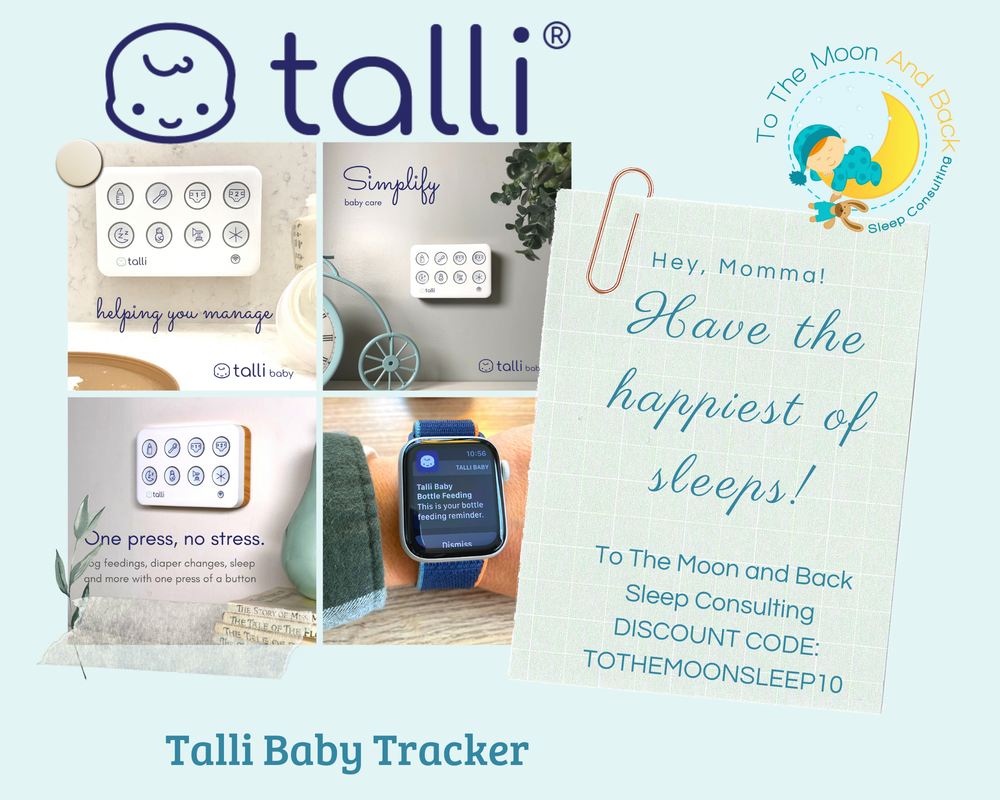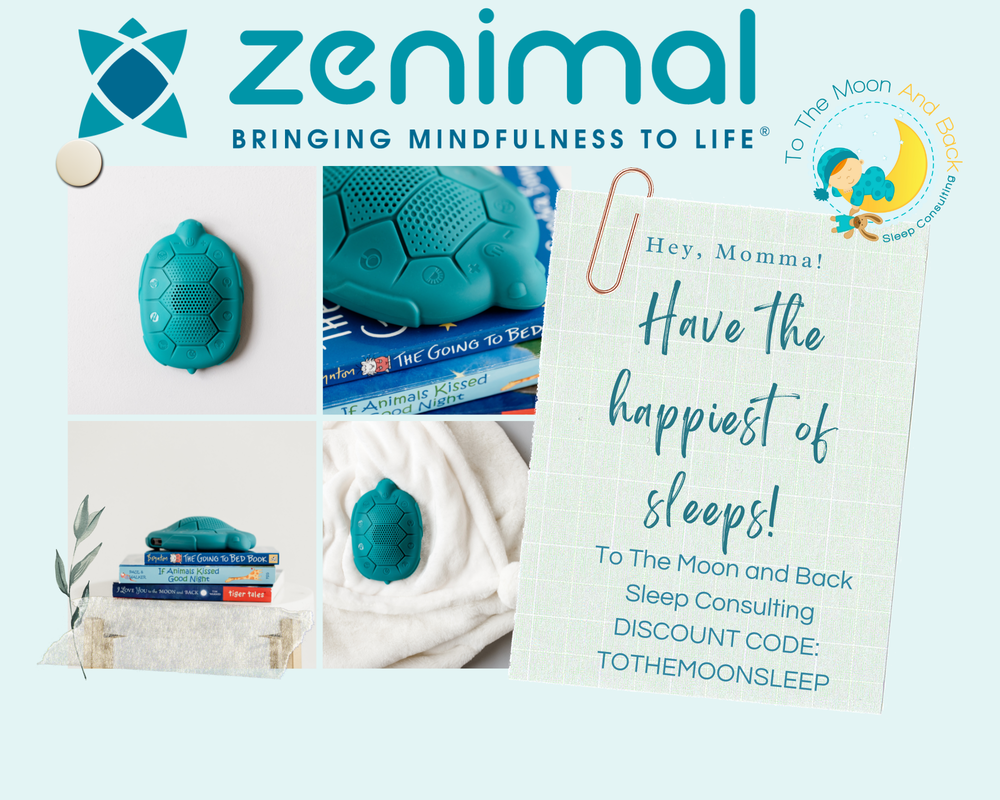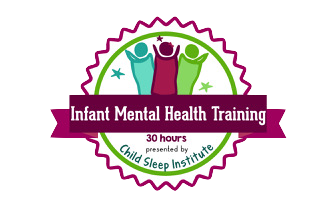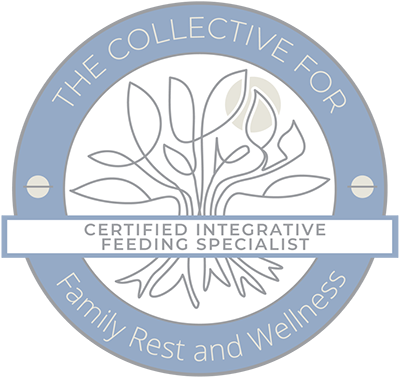|
Is your little one waking up in the middle of the night? No, no, not like that. I mean, like really waking up. Waking up and staying up. For, like… hours. If you’re the parent of a baby or toddler who’s dealing with segmented sleep, you know exactly what I’m talking about. This isn’t the middle of the night. “Go in and comfort your little sleeper for ten minutes until he gets back to sleep” wake up. This is a full-blown 3:00 a.m. dance party. It’s got a few names. Segmented sleep, bifurcated sleep, split nights, and it describes a situation where your little one sleeps for a long stretch, then wakes up happy and energetic in the middle of the night and stays that way for an hour or more. Slit Nights aren’t a new or unnatural phenomenon. Back before the widespread use of the electric light bulb, people would regularly sleep for a few hours, wake up for another hour or two, then go back to sleep. They’d use the time to read, smoke, pray, and have sex (not necessarily all at once), and then after an hour or two, they’d get back into bed and sleep until morning. (Apparently, it was also a typical time for visiting one’s neighbours. Not to hate on the old days, but if my neighbours came over unannounced at three in the morning, oooohhh, things would get biblical.) Nowadays, however, the vast majority of us go to sleep at night and, hopefully, close our eyes and sleep straight through until morning. But let me guess… your kiddo didn’t get the memo? Split nights are actually a pretty common issue. Baby goes down at 7:30 at night, wakes up at 3:00 in the morning, parties her ass off for an hour and a half, then goes back to sleep, apparently careless about the groggy, miserable day she’s set her parents up for. So let’s take a quick look at why this happens, and then we’ll learn how to solve the problem. Why Do Split Nights Happen? There are two major drivers when it comes to sleep. First, there’s our circadian rhythm, which is our natural tendency to fall asleep when it’s dark and wake up when it’s light. Then there’s our homeostatic sleep drive, commonly known as sleep pressure, which builds up over the time we’re awake. So ideally, over the course of the day, sleep pressure builds up, then at bedtime, when the pressure hits the sweet spot, baby puts her head down and goes to sleep. Then, as that sleep pressure begins to subside, circadian rhythm takes over, and baby stays asleep until morning. In the case of a split night, we could be looking at one of two reasons why they’re waking up. ● Your baby or toddler is not getting to bed early enough, OR… ● She is going to bed too early. Now before you pitch your phone out the window at that seemingly paradoxical explanation, check this out. How to Fix Split Nights? If your little sleeper is getting to bed too late, if too much sleep pressure has built up, the brain has this instinctive response that says, “Hey, you’re tired, but you’re not sleeping. I’m guessing that’s because there’s a carnivorous apex predator around, so we’d better get ready to make a break for it,” and then starts upping the cortisol levels. The brain means well, but it’s a little behind the times on our need for lion alerts. So this can make it tough for baby or toddler to get to sleep at bedtime since that cortisol’s got them a little bit jacked. It can also cause a full wake-up at the end of a sleep cycle, which commonly happens around 2 or 3 in the morning. Ugh. If this is the case, you’re one of the lucky ones. Treat this like any other nighttime wake-up, reassure baby that it’s still bedtime, comfort her and let her get back to sleep on her own, and consider moving bedtime up a bit over the course of a few nights. But then there’s the alternate scenario. What if your little sleeper gets to bed too early? In a situation where your baby or toddler’s getting lots of quality daytime sleep and going to bed early, it’s possible that there’s not enough sleep pressure built up to keep him sleeping until his circadian rhythm takes over and helps him sleep through the rest of the night, so up he gets. And now that there isn’t as much sleep pressure, and their circadian rhythm doesn’t have the horsepower to get them to sleep on their own, suddenly they’re up and active for an hour (or three!) while that pressure builds back up. Now, I’m all about early bedtimes. Too little sleep is a much bigger problem than too much. But suppose your baby or toddler's experiencing this kind of split-night sleep. In that case, it’s worth looking at their schedule and doing a little fine-tuning to ensure that you’re hitting the optimum sleep pressure right at the same time that baby’s going to bed for the night. I know plenty of situations can arise where you’ll want to get baby to bed a little early. For example, if she had a day of lousy naps and is clearly tired half an hour before bedtime, it’s the right move to get her to bed ahead of schedule. But try to avoid putting your little sleeper to bed early, more than one or two nights in a row. We want to prevent over-tiredness, but we also don’t want them in the crib at night for more time than they’re actually capable of sleeping. So if your baby or toddler's had a tough day and didn’t nap well, it’s fine to get her to bed a little early since that sleep pressure is likely already built up, but try to get her back onto the regular schedule starting the next morning, including her wake-up time. I know that this can all start to sound like an immaculately choreographed ballet. In some ways, it can be pretty complicated. Still, the more you understand the nuances and know where to make those minor adjustments, the better your baby or toddler will sleep. The less they’ll run into these regressions, setbacks, and interruptions. One final thing to consider if you’re getting ready to tackle this situation. This is not likely to be an overnight fix. Once your little one has gotten into this habit, getting them out of it can take some time. Like any attachment or dependency, overcoming it is an incremental process, and it’s likely to meet with some pushback, so if and when things get tough, remember your goal. You’re giving your little one the skills they need to sleep soundly through the night, and that contributes to their well-being in so many different ways. So stay consistent, be patient, and before too long, you and your little sleeper will both be enjoying full nights of deep, restful sleep. If you are having trouble with your child's schedule and are unsure what it should look like get our Free Sleep Needs Chart. It will help you determine wake windows, nap lengths, number of naps, bedtimes, along with wait times for night time interventions. AuthorErin Neri - Certified Pediatric Sleep Consultant and Owner of To The Moon and Back Sleep Consulting since 2016. If you’re reading this, you likely have a little one who’s been falling asleep in an awkward position. You may have heard that it can be an issue and are looking to learn how to deal with it ahead of time. You may also be oddly interested in the most random blog post topics you can find online. Either way, I will do my best to ensure you walk away from this post feeling like you got some serious value out of it. So your baby has learned to stand up! Congratulations on this wonderful milestone! It’s such an exciting time to be a parent, and this is such a massive step into the world of development that’s coming your way very soon. Many babies have issues when they first learn to stand up; they haven’t learned to get back down yet. During the day, this doesn’t present much of an issue. Your little one can spend all day practicing going from standing to seated while you’re next to them and helping them through it. But once nighttime rolls around, this becomes a whole other issue. I know the Catch-22 this puts parents in, believe me. On the one hand, you can’t just leave your baby in a situation where they might fall down and hurt themselves, but on the other, if you keep going in and laying them down, they don’t learn how to do it themselves. Moreover, they’ll quickly learn that standing up and making a fuss is a pretty effective way to get mom or dad back into their room and pay attention to them. So there’s a fine line that we need to walk to help baby figure out how to solve this little situation they find themselves in without creating a bad habit that could sabotage their sleep. If your baby hasn’t started this behaviour yet, let me warn you: It’s frustrating—more so than the average middle-of-the-night wake-up—because the solution is so totally obvious. You’ll likely find yourself saying, “Just lie down, already!” more than a few times before this gets resolved. As with all parenting, patience is essential. Keep in mind that your baby may not know how to go from a standing position to a sitting one on their own yet, and they may not realize that sleep comes a whole lot easier when you lie down. Remind yourself of this when they wake you up for the fifth or sixth time in three hours because they’ve woken up and gotten back on their feet again, fussing because they can’t get back to sleep. The quickest way through the first part of the equation is to develop that standing-to-sitting skill, so during the day, practice going from standing to sitting whenever you can. When a baby pulls herself up to a standing position, try putting their favourite toy or stuffie on the ground nearby. Gently encourage them to go from a standing position back down to ground level to get their reward. Once they’ve mastered that skill, however, that second hurdle may still be an issue. They may not realize that sleep is much easier to achieve when lying down. It seems like it should be instinctive, but many things seem that way when you’ve been doing them all your life. When you’ve only been around for nine or ten months, it might not seem so intuitive, so again, patience, mama! We don’t want to create a situation where baby starts relying on you to do the work for her, so avoid repeatedly laying her down when she stands up in the crib. Do it a few times at first to show her what’s expected, but switch to a more suggestive approach that doesn’t involve contact once that’s established. Pat the mattress and use a key phrase, like, “Lay your head down” or “Come lie down, baby,” before too long, they should start to connect the dots and realize that lying down is the best way to get to sleep. Remember, even though it might appear that your little one is fighting sleep sometimes, that’s rarely the case. They want to sleep, but they lack the skills necessary to get there on their own, so help them figure it out without doing the work for them. They’ll take care of the rest as soon as they develop a little confidence and ability. And one last little tip before I leave you! Hats off to all of the single parents out there and the fantastic work they do, but if you’re raising baby with a partner, talk this out with them and come up with a plan that both of you can agree on and follow through with. One parent responding with one set of expectations while another responding totally differently will confuse the baby even further in a situation where they’ve already got a lot to figure out. You will need to respond in the same way for your expectations to be clear, and you’ll see results much quicker if you’re working from the same playbook. As always, be calm, be patient, and be consistent. The hard work now will pay off a thousand times when your little one sleeps soundly through the night and happily goes down for naps during the day. AuthorErin Neri - Certified Pediatric Sleep Consultant and Owner of To The Moon and Back Sleep Consulting since 2016. So, you want to know how to help your little one get better naps. We will start with the sleep environment and ensure it's set up for optimal sleep. Darkness plays a vital role in the quality and quantity of our sleep. So, I always start with the room's darkness and ensure it's blacked out! And I mean blacked out, like CAVE DARK, can't see anything black. If you want to see what I mean when I say cave dark, email me, and I'll send you my Black Out Chart to give you a really good visual of what's dark in my world. Good quality blackout curtains will help darken the room, obviously, but they also help regulate the temperature in the room and block out environmental noises from waking Baby. SleepOut Portable Blackout Curtains are the ones I recommend to families (Discount Code: TOTHEMOONSLEEP10). Make sure Baby is not too hot and not too cold. Use sleep sacs once Baby is out of the swaddle. Baby's room should be between 19-21 Degrees Celsius. Next, I would ensure that all safe sleep guidelines are followed and that there is nothing in the crib but Baby and their sleep sack (under 12 months of age). There should be nothing hanging from the crib either, no mobiles. I have already touched on safe baby sleep guidelines on the blog, but they must be mentioned here again. If you need clarification on the most up-to-date guidelines, email me, and I'll send you the guide my one-on-one parents receive from me. Next, I suggest parents use a white noise machine for all sleep situations, not just naps. White noise can help babies connect sleep cycles and drown out environmental noises from waking baby. You want to make sure that you are using white, pink or brown noise. Not music or whale calls or lake scenes with wild birds chirping. These things will be to stimulating and wake up Baby's brain. Another suggestion along those lines is using an Ok-to-Wake device like the Hatch Rested+. These will give you light when you must attend to Baby at night. You want to have it set on a dim red for sleep time as this helps the brain during the night to produce melatonin. The other thing these Ok-to-Wake Devices or Toddler Clocks do is to give Baby something tangible to look for to know when it's time to wake up in the morning or from a nap. When it hasn't changed to green to signal that it's morning or the end of nap time, they can roll over and go back to sleep between sleep cycles. Ok-to-Wake Devices can also cut down on early morning wakings and crying in the morning. They learn that someone will come and get them up when the clock changes to yellow or green. They don't have to cry to signal that they are awake. In my experience, it's never too early to start teaching babies how to recognize the Ok-to-Wake Device changes. Babies are way smarter and more capable than we realize. The earlier, the better. All naps should take place in the crib or bassinet. This is the safest place for Baby. Plus, since you have blacked out Baby's room and followed all of the other suggestions above, it's probably the only appropriate sleep place for her to nap. Now, let's move on to following an Eat, Play, Sleep Routine. This means what it sounds like. When baby wakes in the morning from a full night's rest, we want to feed baby. Now because baby just had a 12-hour sleep, she should not be sleepy during this feed. Then it's time for learning, connection and playtime. Now depending on Baby's age and wake windows, they should not need another feed before going back down to sleep. And if they do, chances are they are old enough for a solid's snack to top them off before nap time. Ensure you are not feeding Baby breast or bottle at least 1 hour before going down for a sleep. Yes, this means Baby will go down in the crib awake; wide awake is best. Following this schedule, babies are not fed to sleep; they use independent sleep skills. They are in control of their sleep and nap like champs. Next, let's talk about wake windows. You want to make sure that you are following age-appropriate wake windows. These are going to vary and increase as Baby gets older. There are ranges in these wake windows, so it's up to parents to help Baby find that sweet spot. Check out this blog post here to learn more about age-appropriate wake windows. To help find that sweet spot and make sure baby isn't overtired. Put baby down awake 10-mins before the end of the awake window. This gives Baby time to roll around, get comfortable and calm into sleep. If you are seeing a lot of sleepy cues from your baby, then you are likely missing their window. Baby is going into the crib overtired, and you are likely hearing about it. Try this 10 minutes before the end of the awake window trick, and you may have found your baby's sweet spot. Now that you have found your Baby's sweet spot for sleep, it's time to let him get to sleep. Baby drifts off happily into sleep and doesn't make a peep. My final tip is going to be for those catnappers out there. Do not assume that Baby is done sleeping after only 20-30-mins of sleep. This is generally not enough sleep, and they require more. But it can be hard to connect sleep cycles during the day. Babies need the time and the space to learn this skill. After Baby wakes up, give them some time and space to get back to sleep. Institute crib hour and keep baby in their dark sleep space for up to 1 hr "of sleep." Now I know that this sounds easier than it is to implement, and several other factors come into play when helping Baby learn to sleep well independently and get back to sleep from a short nap. So, if you are struggling with your baby's sleep or lack of sleep skills, please book a Free 20-minute Sleep Evaluation. We can discuss how I can help your baby learn to nap like a champ and sleep through the night (11-12 hrs). AuthorErin Neri - Certified Pediatric Sleep Consultant and Owner of To The Moon and Back Sleep Consulting since 2016. If you plan on addressing your little one’s sleep issues, I want to prepare you for something. It’s possible that things are going to get worse before they get better. For some babies, that might mean a night or two of more intense crying at bedtime; for some, it might mean more like four or five. That probably doesn’t come as a big surprise. If you have a child that doesn’t sleep well, you’ve probably already established an elaborate routine to respond to your baby’s bedtime. It’s usually a combination of feeding, bouncing, getting them settled in your arms, popping in a pacifier, and getting them into their crib at the exact right moment. Why? Because if you try to do it any other way, your baby will cry. And if you don’t give in, they’ll cry even louder and harder. It’s a common response to behaviour modification known as an extinction burst. EXTINCTION BURST An extinction burst occurs when a behaviour that has been previously reinforced suddenly stops being reinforced. In other words, when a baby is used to receiving a specific response or reward for a particular behaviour, and that response or reward is suddenly removed, the baby will increase the intensity and frequency of that behaviour in an attempt to get what they want. In this case, the rocking, shushing, or nursing to sleep that they’re accustomed to. Extinction bursts can occur in various situations, from sleep training to weaning from breastfeeding. They can be particularly challenging for parents to navigate, as it can be difficult to tell if the baby is seeking attention or if they’re genuinely upset. However, it’s essential to understand that extinction bursts are a normal part of a baby’s development and are not a sign that something’s wrong. So, how can parents cope with these bedtime extinction bursts? One word. Consistency. CONSISTENCY Suppose you have decided that a particular behaviour is no longer acceptable or that a specific reward will no longer be given. In that case, it’s crucial to stick to that decision and not give in to the baby’s increased efforts to elicit the desired response. Staying consistent isn’t going to be easy, I know. The increased intensity of the baby’s crying will be stressful and occasionally overwhelming. Still, it is important to remain calm and consistent. Get your partner involved or call in the support team, whether it’s your parents, your in-laws, your friends, or a professional sleep consultant so that you can take a break when things get to be too much for you. As tough as things get, don’t forget this crucial fact. Extinction bursts are temporary. Good sleep habits are not. Once you’ve come out the other side of this experience, you can look forward to years of your little one sleeping soundly through the night. Need help to stay consistent and get through your child's extinction burst? Book your Free 20-minute Sleep Evaluation Call with me and I can explain how I can help make this transition to independent sleep a lot smoother. AuthorErin Neri - Certified Pediatric Sleep Consultant and Owner of To The Moon and Back Sleep Consulting since 2016. If you plan on having kids, you should pencil in a few accessories into the budget. A crib, a stroller, and a high chair are all mandatory when bringing home a new baby. And, of course, you’re going to need a baby monitor. I honestly don’t think I’ve worked with a family without a pretty sophisticated baby monitor set up in the nursery. These days, they fall right alongside those other items as “essential” baby equipment. And hey, not for no good reason, right? Baby monitors, even the most basic ones, provide some much-needed peace of mind for parents when they’re not in the room with their little ones. Unfortunately, they’re a bit of a double-edged sword because, for all the peace of mind they can provide and have the exact opposite effect. I often see parents running into their baby’s room the moment they hear the slightest peep out of the monitor. They check to make sure baby’s in a comfortable position, they check their temperature to make sure they’re not too hot or too cold, they check their diaper to see if they might need a change, and after they’ve confirmed that everything’s as it should be, they head back out of the room, sit down for a few minutes until they hear another rustle come through the speaker, and then they’re back in action, repeating the whole process. Seriously. I’ve seen it happen with more than a few families. And I assure you, I’m not exaggerating even a little bit! Now, if you’re reading this and thinking, “What’s so strange about that?” then it’s possible that you are, in fact, addicted to your baby monitor. Interesting little side note here, did you know that the first baby monitor was invented back in 1937 as a result of the infamous Lindbergh baby kidnapping? It’s true! Eugene MacDonald, then president of Zenith (a familiar name in electronics for all of us old-timers), heard about the incident and commissioned designer Isamu Noguchi to create a radio device to transmit sound from the baby’s room to a receiver elsewhere in the house. Good luck snatching a baby out of their crib now, you stupid kidnappers. Over the years, monitors have become increasingly sophisticated. First, they switched from radio to digital signals, did away with the wires, and added two-way communication so parents could speak to their babies as well as hear them; then came the video monitors, wi-fi capability for better picture and sound, and now, now they can monitor a baby’s heart rate, oxygen levels, movements, breathing, sleeping position, even whether or not baby’s got a wet diaper. And therein lies the problem. On the one hand, I think it’s great that we have the technology to monitor our baby’s vital signs and make sure they’re not in a dangerous sleeping position. On the other hand, it’s not exactly good for your mental wellness or your baby’s sleep if you’re in a state of hyper-vigilance throughout the night and rushing in to “fix” things every time baby fusses a little, or the temperature in the nursery rises by a half a degree. Now, I know the absolutely gut-wrenching anxiety that parents have about keeping their little ones safe. There’s absolutely no instinct in the world more powerful than the desire to protect your kids. Still, there’s a big difference between exercising due care and obsessing over unnecessary details. Bear in mind that baby monitors have not proven to be effective in reducing the incidence of SIDS. Bear in mind that baby monitors have not proven to be effective in reducing the incidence of SIDS, so even with the millions, probably billions of these machines in nurseries around the world, they haven’t really done anything to prevent the one major catastrophe that parents are desperately trying to avoid. Again, I don’t want to discourage the use of a monitor. But if you’re going to use one, remember what they were designed for. They’re for peace of mind and to inform you of a potential emergency, not to act as a call button demanding immediate attention every time you hear your baby stirring at night. Allowing them to fall back to sleep when they wake up in the night is important and actually essential if you want them to learn the skills they need to enjoy nights of restful, rejuvenating sleep regularly. If you want to minimize the potential for SIDS, injuries, or other nighttime mishaps, check out the American Academy of Pediatrics guide to safe sleep. You’ll find some incredibly valuable information there. Most notably, put your baby on their back to sleep, keep the crib clear of any possible airway obstructions, don’t smoke, breastfeed if possible, and use a firm mattress and a tightly secured fitted sheet. That will go a lot further toward keeping your baby safe than even the most technologically advanced baby monitor ever could. In short, if your baby monitor gives you peace of mind, keep using it. However, it’s time to make a change if it’s stressing you out. Ready to make a change for your family? I can help you teach your baby or toddler independent sleep skills so they have control over their own sleep so they are sleeping peacefully through the night and napping like a champ. All while supporting you, mom, to gain peace of mind around baby's ability to sleep well and letting go of the baby monitor addiction. Book Your Free 20-minute Sleep Evaluation Call now and lets chat about what's going on in your family and how I can help. AuthorErin Neri - Certified Pediatric Sleep Consultant and Owner of To The Moon and Back Sleep Consulting since 2016. Happy 2023, everybody! It’s a whole new year full of potential and opportunities! If you’re like me, when the calendar flips over, you set some lofty new goals to improve your quality of life. Get more exercise, eat healthier, land a new job, save some money, and spend more time with family; there’s no shortage of resolutions we can make to make ourselves and our families happier and healthier. Creating a “New Year’s resolution” has been around for hundreds of years. Sadly, around 88% of people seem to fall short of their resolution goals, but I have a great strategy to help you join the happy minority who set their intentions on January 1st and succeed. How? Well, you probably won’t be too surprised to hear that it involves sleep. (Surprise!) But don’t get the wrong idea! I’m looking at four of the most common, non-sleep-related new year’s resolutions and explaining how a good night’s sleep can scientifically maximize your chances of achieving each of them. So check it out! Here they are, along with the percentage of people who swear they’re going to achieve it on an average New Year’s Eve. Lose Weight - 40% If you’re not getting the recommended 7 hours of sleep per night, it might be affecting your ability to lose weight. That may seem a little counterintuitive to some people. After all, the more time we spend awake and active, the more calories we burn, right? The problem is that sleep plays a crucial role in moderating two vital hormones called ghrelin and leptin. Ghrelin sends hunger signals to your brain, and leptin does the opposite, signalling fullness and suppressing hunger. A 2004 study found that ghrelin levels were almost 15% higher in people who didn’t get enough sleep, and leptin levels were 15.5% lower, causing them to feel hungry more often. So if you’re determined to lose weight this year, getting enough sleep can go a long way to helping you reach that goal. Get more exercise - 52% Getting in shape is always an admirable goal. Getting your heart rate up, staying active, improving flexibility, and building strength are all excellent ways to help you stay healthy and feel your best. But if you’re not getting the sleep you need, getting motivated to hit the gym or go for a run can be a much more significant challenge than it needs to be. You’re likely to get tired out faster and not see the results as quickly as you would if you’re regularly enjoying a good night’s sleep. Sleep is the body’s regeneration phase, so even if you work out vigorously during the day, your muscles won’t regenerate bigger and stronger if you don’t get the recommended amount of sleep at night. Or, as the gym fanatics would put it, “You ain’t gonna see those gains, bro!” In short, getting the biggest return on the effort you put into your workout requires a good night’s sleep. Seeing those results is an excellent way to stay motivated. Spend more time with family - 37% We’re all looking to make the most of our time, but we also obviously have responsibilities that must be attended to. Whether you’re working a 9-5 job, running a small business, or a stay-at-home mom, by the time you’ve tackled everything that needs to be done in a day, there’s hardly any time to just get together as a family and enjoy each other’s company. We can’t increase the number of hours in a day, but we can increase our productivity, freeing up time to do the things we love, and to do so, all you need to do is get to bed on time. According to Dr. Michael Grandner, director of the Sleep and Health Research Program, “Many people believe that in order to get more done, they need to sacrifice sleep.” However, this study shows that, quite to the contrary, poor sleep is associated with lower productivity in general, and specifically across a wide range of areas.” So, simply put, even though you may be getting to bed earlier, that extra sleep will increase your productivity to the point where you’ll actually have more time during the day to spend doing the things you love. Eat Healthier - 50% Check this out. A 2013 study found that sleep deprivation led to significantly higher cravings for foods high in fat and/or sugar. You can check out the article for all the science-y stuff, but I’ll let the study’s authors explain it in layperson’s terms. “What we have discovered is that high-level brain regions required for complex judgments and decisions become blunted by a lack of sleep, while more primal brain structures that control motivation and desire are amplified. These results shed light on how the brain becomes impaired by sleep deprivation, leading to the selection of more unhealthy foods and, ultimately, higher rates of obesity.” So, getting enough sleep can actually make it easier for you to eat right. How great is that!? And there you have it, people. If you want to set yourself up for some new year’s resolution success, there’s one habit you can focus on that’ll make all the others much easier to achieve. Get to bed on time, turn off those screens at least an hour before you hit the hay, leave your phone in the living room, and take the time to wind down before bed. And if you’re not sleeping well because your little one is waking up at night, we should talk! Solving your baby’s sleep issues is the first step to solving your own, and I’ve helped hundreds of families do exactly that. Book your Free 20 Minute Sleep Evaluation now. AuthorErin Neri - Certified Pediatric Sleep Consultant and Owner of To The Moon and Back Sleep Consulting since 2016. The holidays are almost upon us, and I absolutely love this time of year! Why? More than anything, it’s the opportunity to reconnect with the special people in our lives who we might not have seen in a while. Of course, everything about the holidays is special to me, but the people are what really get me excited. Friends, family, neighbours, and acquaintances take this occasion to visit one another in person, which I’m sure we can all agree is more valuable to us this time after the pandemic caused so many missed opportunities to reconnect. For many of you, this may be the first time your friends and family members get to meet your new baby, which is such a magical moment for everyone involved. Babies bring us together in an extraordinary way. Now, I don’t want to sound like a grinch here, but if you’ve been working hard to teach your baby some independent sleep skills and they’re finally sleeping through the night, I just want to warn you that even though this is a wonderful time to celebrate and spend time with the people you love, it’s also an absolute minefield of potential sleep sabotage. I’m going to single out grandparents here because they’re the most likely to be staying with you and the most likely to take liberties with your rules around your little one, but the same strategies apply to anyone who might be nudging you to ease up on bedtime and naps so they can visit with your baby. Common examples of this “nudging” include…
All of these things are said with the best intentions, of course. Grandparents are usually more than willing to get up and tend to their grandkids. You can’t really fault people for wanting to spend time with your adorable babies, can you? Intentions aside, though, sticking to your guns when people ask you to push back your little one’s bedtime can be tough, but I assure you, it’s necessary. One late night is often enough to leave your baby overtired, making it tough to get them to sleep, causing less restful sleep when they eventually do go down, and often resulting in nighttime and early wakeups, all of which leaves your baby tired and irritable the next day. And whose problem is it then? Well, yours, obviously. The first thing most people do when a baby starts to cry is hand them back over to their parents, thinking they know how to get them settled. Then the bad night’s sleep leads to a tough day of naps, leading to another rough night, and here we go again, just in time for the holidays. I’m not trying to be an alarmist, but things can get out of hand pretty quickly, so today, I wanted to give you some tips for politely but firmly putting your foot down when your houseguests ask you to hold off on putting your baby to bed. Be confident in your decision. Remind yourself of what you and your baby were going through when they weren’t sleeping well, and ask yourself if you can go through it again, especially during the holidays. Remember that you’re doing the right thing for everyone involved, and that’s never selfish. Explain the situation. If people understand the struggle, you’ve undertaken to get your baby sleeping well. They’ll be much more likely to accept it when you insist on strict bedtime and nap schedules. So let your guests know that you’re right about teaching your baby some sleep skills and that they’ll need to go to bed at specific times, with no exceptions. Highlight the rewards. This is really the best method I’ve found for appeasing houseguests who don’t know the value of sleep. When they’re pushing for you to let baby, say, skip a nap, ask them, “Would you rather spend three hours with a crying baby or two hours with a happy one?” After all, it’s tough to bond with a baby when they’re fussing and irritable, so remind Grandma and Grandpa that it’s a choice between forming those cherished memories of their grandchild laughing and cooing in their arms or significantly more forgettable ones of them fussing, screaming, and reaching for their parents because they’re tired and miserable. Take deep breaths. I know that sounds facile, but deep breathing really is an effective method of calming your brain and body down in moments when, let’s say, just as an example, your mother-in-law goes to “check” on your baby after they’ve been napping for 15 minutes and then emerges from their room holding a tired, bleary-eyed baby in their arms, claiming that baby was already awake when they walked in. Y’know. Just hypothetically. Not like your mother-in-law would dream of doing such a thing. Take a few deep breaths, seriously. Before you say anything, just smile, breathe deeply in through your nose and out through your mouth, and remember that they’re just head-over-heels in love with their grandchild and didn’t do it to overrule or defy you. Give it a minute, and once you’ve cooled off a bit, calmly tell her that you’d like to see if baby can get a slightly longer nap and take her back to her crib. Be the Boss. Above all, remember, this is your child, and you know what’s best for them, so don’t let other people’s suggestions or experiences influence your judgment. You may hear things like, “We always let our little guy stay up late on Christmas Eve so he’d sleep late on Christmas morning,” or “You’ve got to make exceptions during the holidays.” None of those people know your baby like you do, so all of their opinions combined don’t hold a candle to your knowledge and proficiency in this arena. You don’t need to be a tyrant, but you should never forget that you’re in charge because you’re the expert! So rock that title and do what you know is right. The great news is, this is usually a one-time ordeal because once your family and friends see how well your little one sleeps, they quickly learn to appreciate why you take it so seriously. After experiencing first-hand how delightful it is to be around a well-rested baby, they won’t be asking questions when they come back next year. Instead, they’ll just enjoy the experience and quietly marvel at how awesome you are at raising kids. So happy holidays, everybody! Have fun, enjoy the season, and sleep well! AuthorErin Neri - Certified Pediatric Sleep Consultant and Owner of To The Moon and Back Sleep Consulting since 2016. As a mother myself, and a sleep consultant, I've come to the inescapable conclusion that babies, as a rule, are complicated creatures. Matthew McConaughey’s quote on newborns always gives me a chuckle, "They eat, they crap, they sleep, and if they're crying, they need to do one of the three, and they're having trouble doing it. Real simple." In a way, he's right. A baby's vital needs essentially break down into sleeping, eating, and pooping. Their only real form of communicating any issue is through crying. Identifying the fact that there is a problem with our babies is far easier than solving the problem, and as parents, isn't that all we want?
As a pediatric sleep consultant, there are a few questions I’ve grown accustomed to hearing. People are understandably curious about whether or not their child is going to cry, and if so, for how long. They want to know how long it’s going to take before baby starts sleeping through the night, and when they’ll be able to do the same.
And even though they never come right out and say it in so many words, they want to know if there’s some kind of magical solution that will solve the problem instantaneously without any effort, crying, or protest. |
To The Moon and Back Sleep ConsultingProviding families the tools & support they need to get their little ones sleeping through the night and napping like champs! Everyone has more fun when they are well rested! Visit Wollino - Discount Code: TOTHEMOONANDBACK10
Browse
All
|
All information provided on this website, including texts, images, and other materials, are for informational purposes only and should not be considered a replacement for assessment or treatment by a healthcare provider.
© COPYRIGHT 2016-2024 TO THE MOON AND BACK SLEEP CONSULTING. ALL RIGHTS RESERVED. WAKING GIRL WEB DESIGN
© COPYRIGHT 2016-2024 TO THE MOON AND BACK SLEEP CONSULTING. ALL RIGHTS RESERVED. WAKING GIRL WEB DESIGN

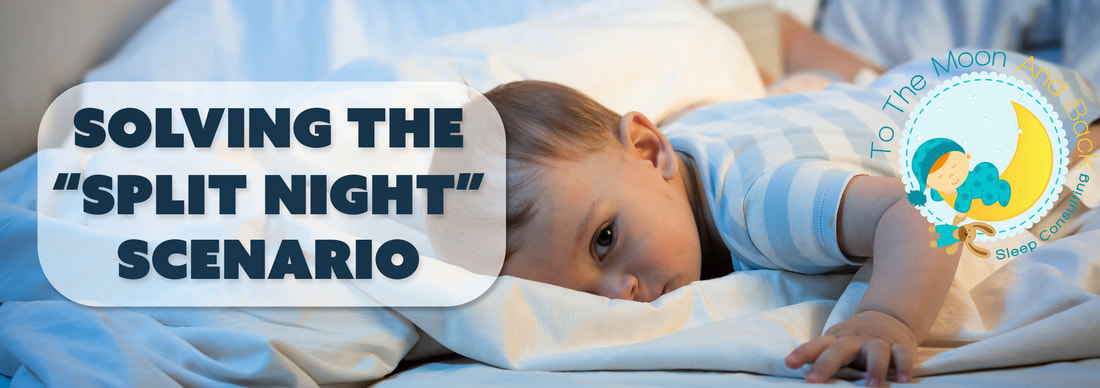

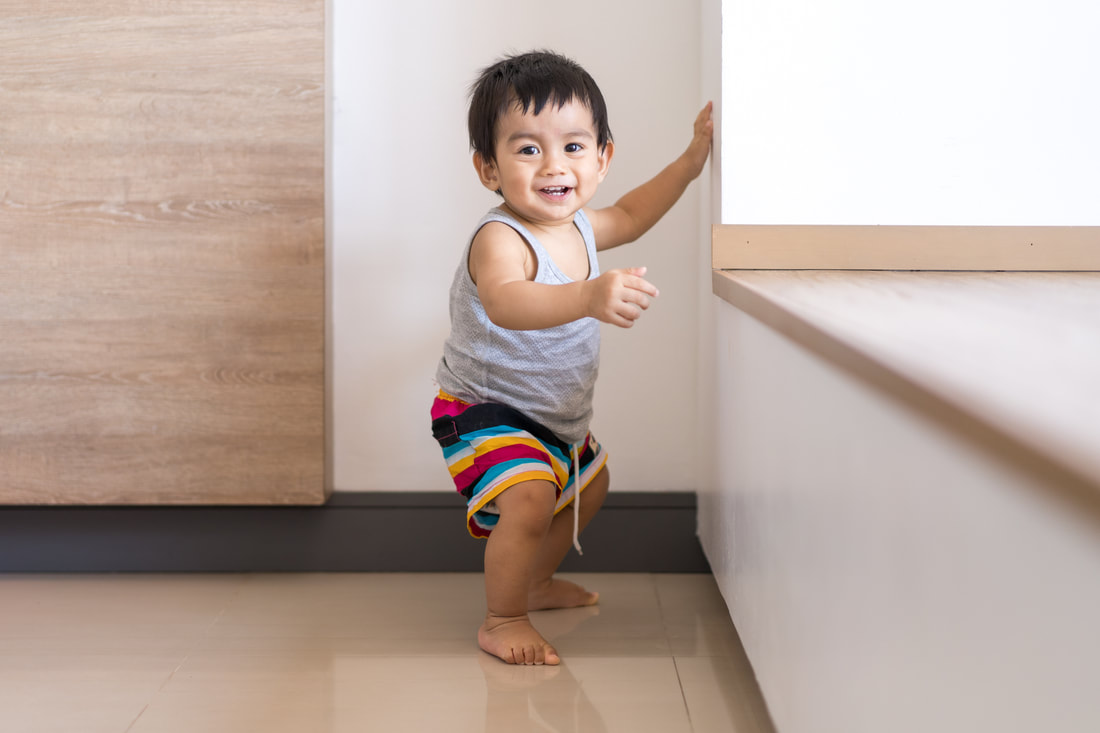


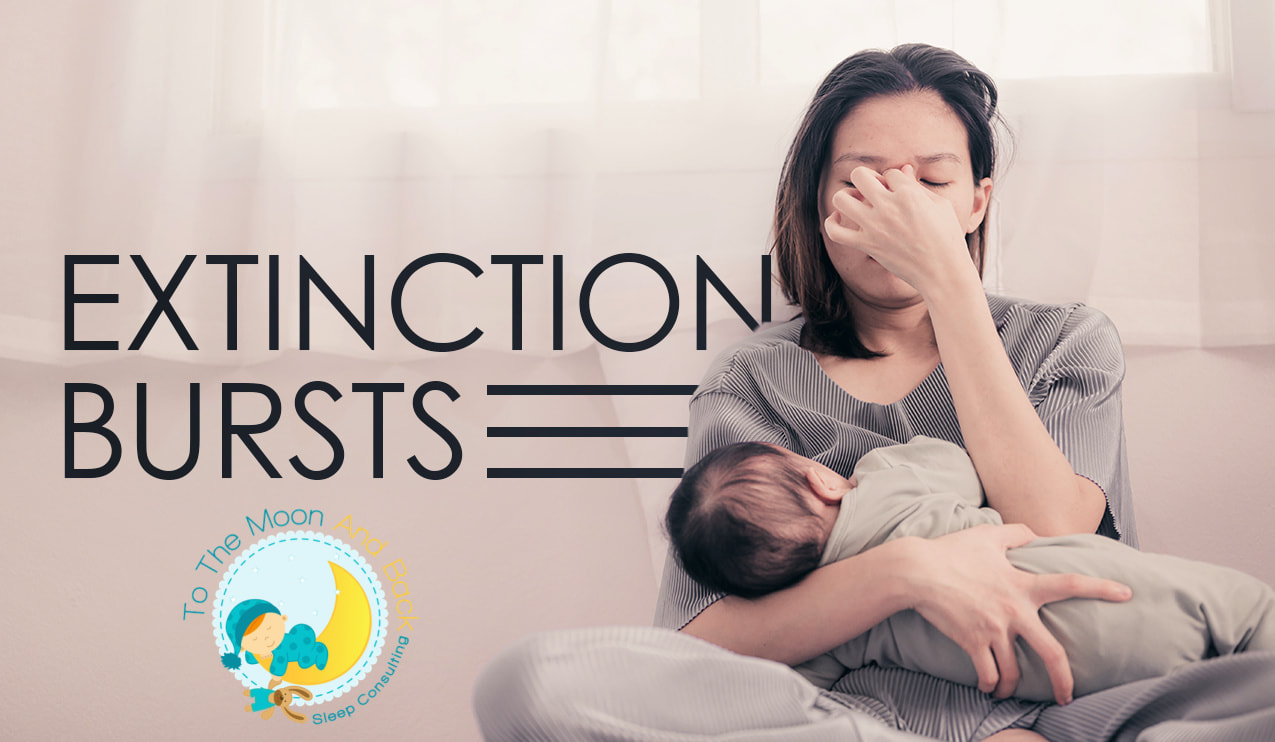
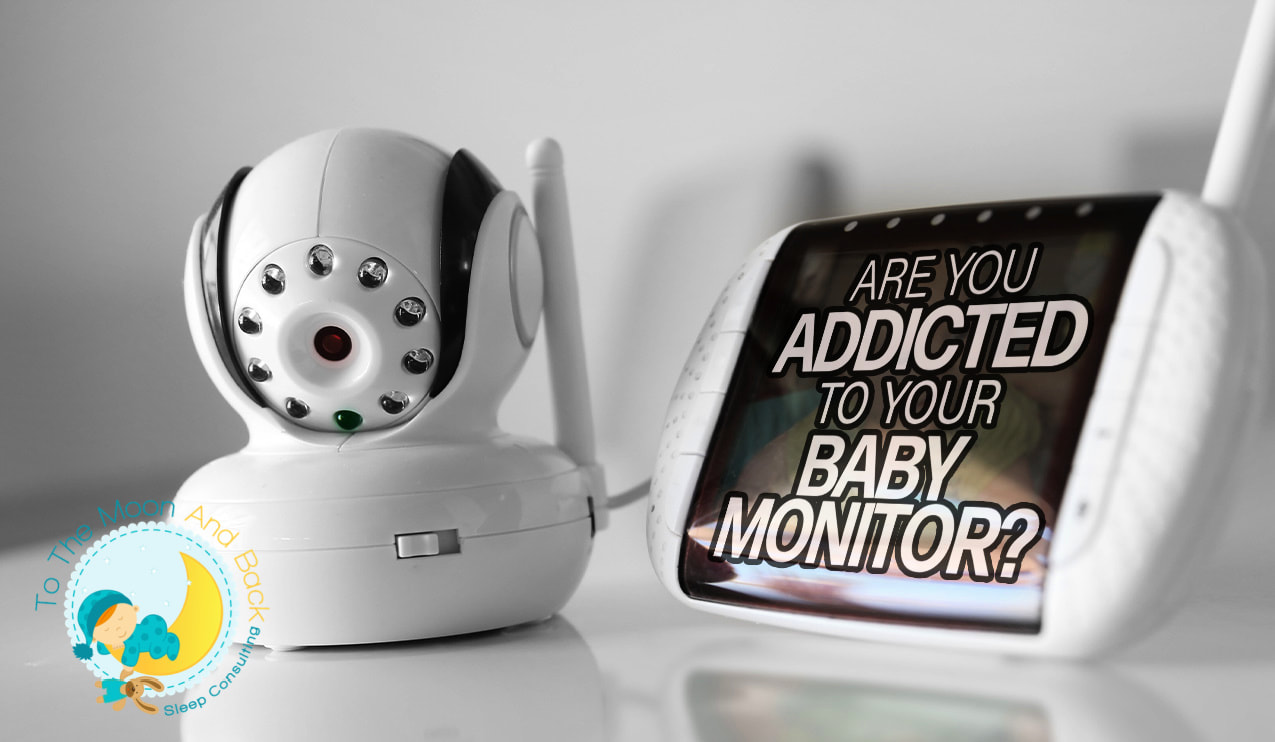


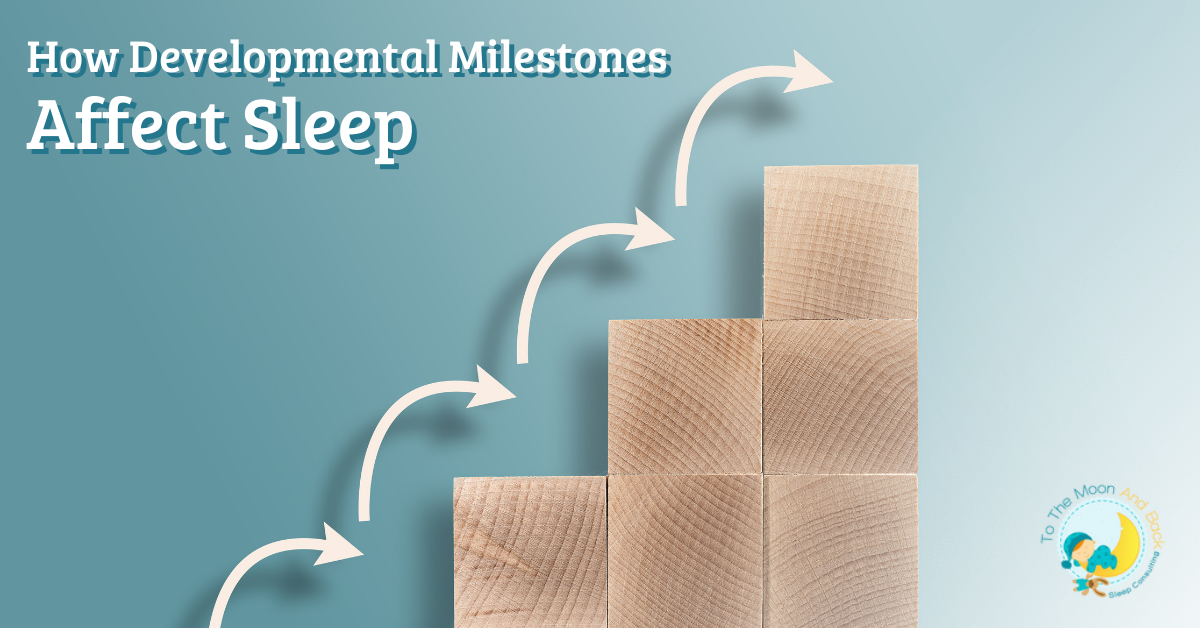

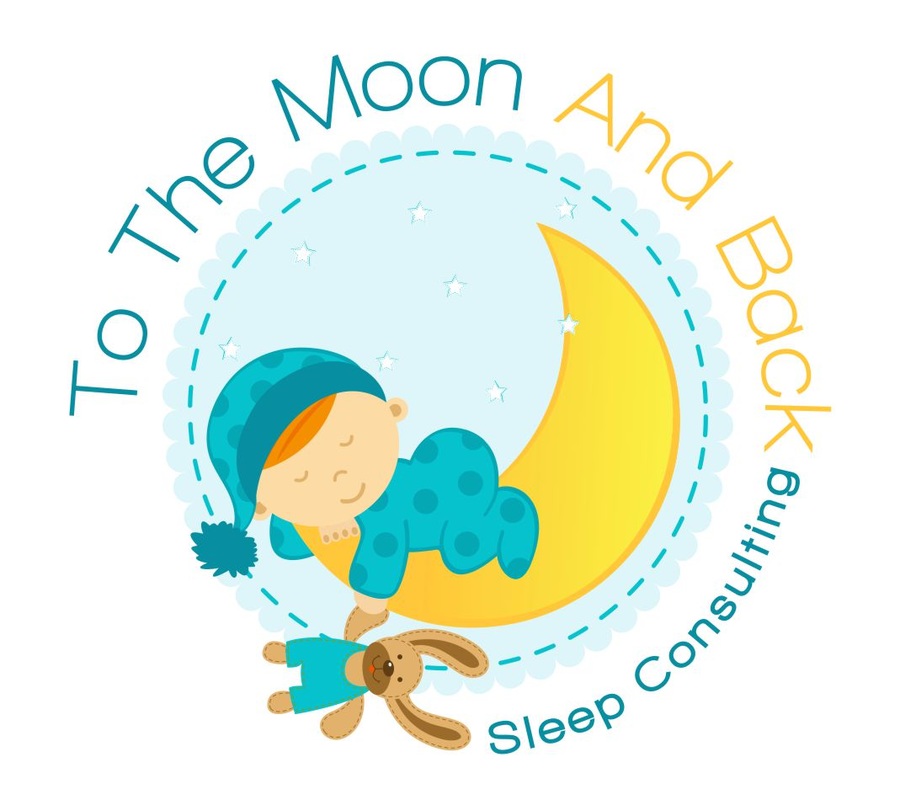
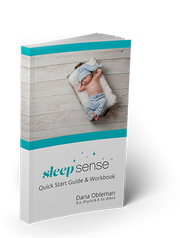
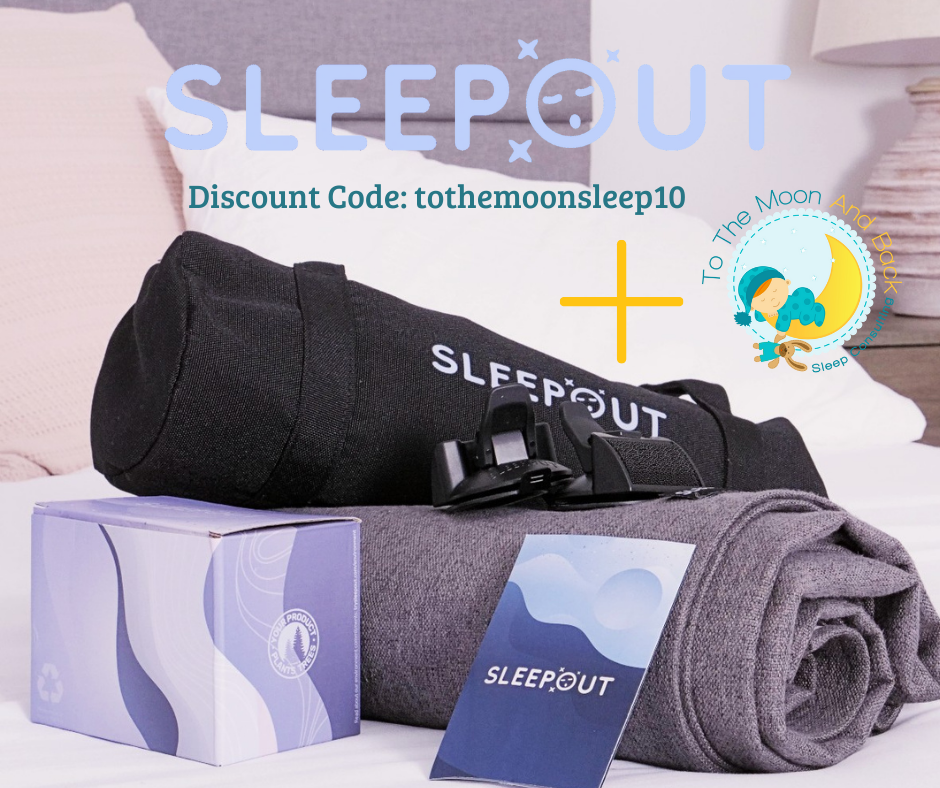


 RSS Feed
RSS Feed

